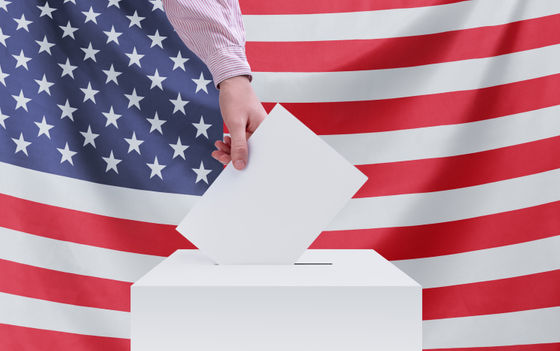Analysis shows that SNS users are 'less than half' likely to accurately evaluate AI-generated content. How did AI influence the US presidential election?

The 2024 US presidential election was the first US presidential election since ChatGPT was made public. The Institute for Strategic Dialogue (ISD), a think tank that studies the spread of false information and the impact of extremism in democracies, reported that 'the proliferation of biased content caused by AI has left voters exhausted by the endless generation of deep fakes generated by AI.'
Disconnected from reality: American voters grapple with AI and flavored OSINT strategies - ISD
According to the ISD, since August 2024, there have been 1.1 million election-related social media posts about AI, with an estimated 16.3 billion views on X alone.
These online discussions ranged from content evaluations to false accusations against AI, voter confusion about real issues, and AI-generated images posted by the candidates themselves.
Despite widespread awareness of the problems with AI-generated content, social media and other platforms have failed to label or remove it.
As a result, voters are having difficulty judging the authenticity of online content, and ISD's analysis found that social media users inaccurately evaluate the authenticity of content 52% of the time. '52% inaccurate' means that they are wrong more often than not.

'Internet users are more likely to mistakenly believe that real content is generated by AI than to falsely claim that AI content is real,' the ISD said.
The ISD found particularly worrying that many voters were claiming or implying that everything coming from presidential candidates and their supporters was AI.
In the case of content that mentioned AI in the context of elections, 45% of the content included this type of claim. This is a concern that voters will lose trust in all information and feel that everything is AI, leading to a 'liar's dividend' problem.
As a post emblematic of the problem, ISD pointed to the following: 'It's all AI bullshit. Republicans, Democrats, Russia, and every other political party are bombarding us with their own version of the fantasy they want to influence right now. Frankly, I don't know where to turn for reality anymore. Enough is enough...'
It's all AI bullshit. Republicans, Democrats, Russia and whoever are all using it to bombard us with their version whatever illusion they want to peddle today to influence. I frankly am not sure where you can seek reality anymore. Enough...
— jrishel (@jrishel6) August 10, 2024
The main drivers of AI skepticism are text generation AI and AI voice assistants. A notable example is when Meta’s AI assistant said that “ the assassination attempt on Donald Trump never happened.”
While the ISD speculates that this is likely simply because the training data for Meta's AI model did not include articles about the assassination attempt, many voters have argued that Meta, and especially CEO Mark Zuckerberg, are using AI to change the outcome of the election. Similarly, Amazon's voice assistant was criticized for responding when asked 'whether you should vote for Kamala Harris' but not when asked about Trump.
Users take issue with Meta's AI not answering questions about the attempted assassination of former President Trump, Meta points out that it was due to hallucinations - GIGAZINE

Regarding these survey results, the ISD concluded, 'The exponential increase in AI-generated content has created a fundamentally polluted information ecosystem, with voters struggling to distinguish between veracity and falsity. This decline in trust in political debate poses serious risks during election season. Unless media literacy education and social media safety measures improve, this crisis of trust will undermine not only elections but the future of democratic debate as well.'
Related Posts:
in Software, Posted by log1l_ks







